In a world where every other career advice article seems to list endless skills to master, how do you know which ones truly matter?
Learning a new skill feels rewarding, but without a clear strategy, you might be wasting time on skills that won’t make a meaningful difference in your career.
Let’s cut through the noise, focusing on how to identify the skills that will genuinely impact your career growth.
Are you ready to discover which skills can make or break your progress?
Let’s dive in.
The Need for Skill Focus in Today’s Career Landscape
It’s easy to feel overwhelmed by the sheer number of skills out there.
Every industry, every profession, has its own set of “must-haves”, but trying to tackle all of them is exhausting and counterproductive.
In truth, focusing on too many skills dilutes your attention and can lead to burnout.
By zeroing in on the skills that truly drive success in your field, you set yourself up for faster, more impactful growth.
Identify Your Core Career Goals
The foundation for knowing which skills to focus on begins with clear career goals.
Start with two key questions:
- Where do you see yourself in the next 5-10 years?
- What are the immediate skills you need to excel in your current role?
These questions aren’t just about setting lofty ambitions; they’re about gaining clarity on the skills that will bridge the gap between where you are now and where you want to be.
- Long-term goals: If you envision yourself in a leadership role, skills like strategic thinking, communication, and decision-making will be critical. On the other hand, if your goal is to specialize deeply in a technical field, mastering advanced, specific skills within that area becomes essential.
- Immediate needs: Reflect on the skills currently required for your job. For example, if you’re in a client-facing role, skills in customer service and problem-solving will likely play a big role in your day-to-day success. By excelling here, you lay the groundwork for advancing to more complex responsibilities.
Aligning your skills with your long-term vision and present demands will save time and energy, allowing you to build a skill set that accelerates your career path instead of scattering your focus.
Distinguish Between Soft Skills and Hard Skills
Both soft and hard skills are crucial, but understanding when and how they matter is key.
Think of soft skills as your ability to work with people and situations, and hard skills as the technical abilities you need to execute tasks.
- Soft skills: Skills like effective communication, adaptability, and problem-solving are universally valued across roles and industries. They are the cornerstone of working well with others, handling challenges, and demonstrating leadership potential. A manager with exceptional technical expertise but poor communication can struggle to lead effectively.
- Hard skills: These skills are typically specific to your field, from data analysis to programming, design, or financial modeling. Hard skills help you perform job-specific tasks, often making you more competitive for specialized roles.
Many careers require a mix of both, but the ideal balance depends on your field.
A software developer, for instance, needs a high level of technical proficiency but can enhance their career by honing communication and teamwork skills, especially for collaborative projects.
Conduct a Skills Gap Analysis
To identify which skills will have the most impact, you need a clear picture of your current skill set compared to what’s expected in your desired roles.
This is where a skills gap analysis comes in handy.
Here’s a simple approach:
- List your current skills: Note all your skills, including technical, soft skills, and any specialized expertise.
- Identify desired role Skills: Research job descriptions or consult mentors to learn which skills are valued in the roles you aspire to.
- Highlight the gaps: Compare the two lists. Which essential skills are you missing, or where could you improve?
Many find it helpful to seek feedback from mentors, supervisors, or colleagues, who can offer valuable insights on where to focus your efforts.
By identifying these gaps, you create a targeted roadmap for building skills that matter.
Research Industry Standards and Trends
The most effective skills are not just relevant to your role but also aligned with current and future industry needs.
Career trends shift, and staying informed helps you avoid wasting time on skills that may soon be obsolete.
Here are a few strategies:
- Current trends: Skills in areas like data analytics, artificial intelligence, digital marketing, and project management, for example, are in high demand across many sectors. Regularly tracking trends within your industry helps you spot emerging skills early on.
- Benchmarking: Look at profiles of successful people in roles you aspire to. Their skills and endorsements on LinkedIn or professional bios often reveal valuable clues about the skills that count.
Keep a finger on the pulse of your industry to ensure you’re not just building skills for today but positioning yourself for future success.
Prioritizing Skills for Maximum Impact
When you know your long-term goals, have identified skill gaps, and are aware of industry trends, you’re ready to prioritize.
Focus on skills that deliver the greatest benefit, not necessarily those that seem impressive but may be less relevant.
The 80/20 Rule is helpful here: Often, 20% of your skills will yield 80% of the results in your career.
For example, if strong analytical skills are essential in your field, concentrate your efforts here, even if other skills may seem interesting but provide little tangible career benefit.
Create a Personal Skill-Building Roadmap
Once you’ve identified your priority skills, it’s time to develop a structured plan for acquiring them.
A well-defined roadmap allows you to set clear milestones and keeps you accountable.
- Goal setting: Break down each skill into manageable, progressive steps. Let’s say you want to improve your data analysis abilities. Start by learning basic techniques before moving on to more advanced analytics tools and methods.
- Set realistic timelines: Give yourself enough time to master each step. Acquiring a skill doesn’t happen overnight; set achievable timelines that account for practice and gradual improvement.
- Accountability tips: To stay on track, find ways to keep yourself accountable. Partnering with a friend or colleague who’s also working on skill-building can provide mutual support. Alternatively, join a community or use a habit-tracking tool to monitor your progress.
Creating a skill-building roadmap with specific goals and timelines transforms your plan from an abstract wish list into a structured, achievable action plan.
Action Plan for Ongoing Skill Development
Career growth is a journey that requires continual learning and adaptation.
The workplace changes constantly, and the skills you rely on today may not be enough for tomorrow.
Building a mindset of continuous improvement ensures that you’re always ready for what’s next.
- Continuous learning: Stay curious and regularly seek learning opportunities, whether through online courses, certifications, or books. Committing to lifelong learning keeps you agile and better prepared for unexpected changes or opportunities in your field.
- Skill refresh: Periodically review your skill set to determine if there are areas that need refreshing or updating. This practice is particularly helpful with hard skills, which can become outdated quickly.
- Growth mindset: Adopting a growth mindset—a belief that you can always improve through effort—helps you tackle challenges and setbacks with resilience. This mindset not only helps with learning new skills but also opens up opportunities to push your limits.
A consistent approach to skill development doesn’t just prepare you for the next role; it makes you adaptable and ready for any shift in your career or industry.
Identifying and prioritizing the right skills can transform your career trajectory, allowing you to progress faster and achieve your goals more effectively.
By focusing on skills that align with your long-term objectives, bridging skill gaps, and staying updated on industry trends, you can position yourself as a valuable asset in your field.
Start today by choosing one skill that will make the most difference in your career and take the first step toward mastering it.
Your growth depends on it — don’t wait for the “perfect time” to begin.
Every skill you build takes you closer to where you want to be, so make your next move count.
Tags: career skills, skill development, career growth, essential skills, prioritizing skills, skill-building roadmap, professional development, personal growth, in015










